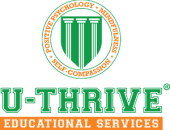College life can often be a juggling act, with academic demands, social activities, and personal responsibilities vying for students’ attention. In the midst of this chaos, finding “the zone” or achieving a state of flow can be a game-changer. The zone is a mental state where individuals are fully immersed and focused on a task, leading to heightened productivity and satisfaction. In this blog, we will explore strategies to help college students get in the zone and make the most of their time and efforts.
Understand the Concept of Flow
Before diving into strategies, it’s important for college students to understand what flow is and why it’s valuable. Flow is characterized by intense concentration, a sense of timelessness, and a feeling of intrinsic motivation. When in flow, students can accomplish tasks more efficiently and with greater enjoyment. Recognizing the benefits of flow can serve as motivation to pursue it.
Set Clear Goals
The first step in getting into the zone is to set clear and specific goals. Students should define what they want to achieve, whether it’s completing a research paper, studying for an exam, or finishing a project. These goals should be challenging but attainable, providing a sense of purpose and direction.
Minimize Distractions
Distractions are the arch-enemy of flow. Encourage college students to create an environment conducive to concentration. This may involve:
- Turning off or silencing notifications on devices.
- Designating a quiet, clutter-free study space.
- Letting friends and roommates know when they need focused study time.
- Utilizing website blockers or productivity apps to limit online distractions.
Manage Time Effectively
Time management is crucial for getting in the zone. Students should break their tasks into manageable chunks and allocate specific time slots for each. Time-blocking techniques, such as the Pomodoro method (25 minutes of focused work followed by a 5-minute break), can be particularly effective in maintaining concentration.
Find Intrinsic Motivation
One of the hallmarks of flow is intrinsic motivation—doing something for the sheer joy of it. Help students connect their tasks to personal interests and passions. When students see the value and enjoyment in their work, it becomes easier to enter the zone.
Challenge Yourself
Flow is often achieved when tasks strike the right balance between difficulty and skill. Encourage students to take on challenging assignments that push their limits just enough to keep them engaged but not so much that they become overwhelmed. Finding the sweet spot between boredom and anxiety is key.
Seek Feedback
Feedback can be a valuable tool for entering the zone. Students should actively seek feedback from professors, peers, or mentors to understand their progress and make necessary adjustments. Constructive feedback can enhance their skills and motivation.
Practice Mindfulness
Mindfulness techniques, such as meditation or deep breathing exercises, can help students get in the zone by calming their minds and increasing self-awareness. Regular mindfulness practice can improve focus and the ability to stay present during tasks.
Embrace Failure
Failure is a natural part of the learning process. College students should view setbacks as opportunities for growth rather than as reasons to give up. This mindset shift can reduce fear and anxiety, making it easier to enter the flow state.
Reflect and Iterate
After completing tasks or assignments, students should take the time to reflect on their performance. What worked well? What didn’t? What could be improved? This process of reflection and iteration can help them fine-tune their strategies for achieving flow in future endeavors.
Getting in the zone or achieving flow is not a one-size-fits-all process, and it may take time and practice to master. However, by setting clear goals, minimizing distractions, managing time effectively, finding intrinsic motivation, seeking feedback, practicing mindfulness, embracing failure, and engaging in reflective thinking, college students can increase their chances of entering this highly productive and satisfying mental state. The ability to get in the zone is a valuable skill that can enhance academic success, personal growth, and overall well-being during the college years and beyond.
Contact U-Thrive Educational Services today to learn more about how we can assist you in helping students build confidence and overcome mental health challenges from the moment they step on campus.
